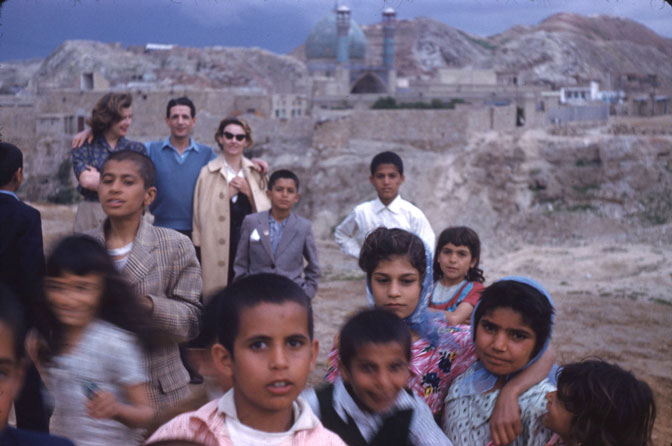Pop Up_Photofilm
Museum für Fotografie Berlin

September 1 - 3, 2021
A cooperation of the Concrete Narrative Society e.V. association and the Museum of Photography Berlin
With the kind support of Neustart Kultur and Stiftung Kunstfonds.
Masterclass Berlin 2021-09-01, Part 1
Miranda Pennell
Recorded at Museum für Fotografie, Berlin
1:17h, EN
In her video work, Miranda Pennell (London) reworks photographs from colonial archives and personal albums to create shifting experiences of time and question how we relate to the past. She probes some of the ways that merging still images within the moving image can help us to better engage with troubled histories.
In the first session, Miranda Pennell is taking her film The Host (2015) as a basis to reflect upon the interaction of personal and collective histories, as well as on the role of the artist in the history they make.
Masterclass Berlin 2021-09-01, Part 1
Gusztáv Hámos & Katja Pratschke
Recorded at Museum für Fotografie, Berlin
1:19h, EN
With their photo-filmic work as a basis, since 2000 Gusztáv Hámos and Katja Pratschke (Berlin) have explored what constitutes the difference between a still and a moving image, as well as which consequences phase-image recording has for our conception of time, space and movement.
In the first session, Gusztáv Hámos and Katja Pratschke are presenting their archival project Sampling Cities (2012-2019) and contemplating upon non/archival gestures and the confrontation with the still image in a cinematographic context.
Masterclass Berlin 2021-09-02, Part 2
Miranda Pennell
Recorded at Museum für Fotografie, Berlin
1:17h, EN
In her video work, Miranda Pennell (London) reworks photographs from colonial archives and personal albums to create shifting experiences of time and question how we relate to the past. She probes some of the ways that merging still images within the moving image can help us to better engage with troubled histories.
In the second session, Miranda Pennell is speaking about the challenge of deconstructing images and languages of violence in her film Strange Object (2020). In addition, she is discussing the use of science fiction as an aid for imagining the past, as well as the use of language, voice, and image/word relationships, so as to understand what is not said or shown.
Masterclass Berlin 2021-09-02, Part 1
Sarah Pucill
Recorded at Museum für Fotografie, Berlin
1:16h, EN
By deconstructing the idea that either photography or film are entire, concrete categories without borders, Sarah Pucill (London) explores encounters within the photo-filmic that engage with performance and the close alliance of sculpture and painting. In the masterclass Sarah Pucill is examining the ways in which the photograph has played a pivotal and foundational role in the early fabrication of her filmmaking.
In her first session, Sarah Pucill is considering various ways in which her first film You be Mother (1990) through to Phantom Rhapsody (2010) demonstrate how the still image operates vertically in film, so serving as a disruptive force within the progression of 'moving' time. And, in turn, how this vertical disruption to the horizontal flow can serve to awaken the shift from Bergson's experience of time as duration, with the 'stilled' image serving as the 'remembered' and hence vertical moment.
Masterclass Berlin 2021-09-03, Part 2
Sarah Pucill
Recorded at Museum für Fotografie, Berlin
1:21h, EN
In the second session, Sarah Pucill is exploring the routes by which the use of tableaux vivants that re-stage the Surrealist artist Claude Cahun's photographs, through the two long films Magic Mirror (2013) and Confessions to the Mirror (2016), instead mimic the photograph as a held pose in time. Hereby, the photograph is remembered, whereupon different time frames meet. Questions are raised regarding how we engage with histories.
Masterclass Berlin 2021-09-03, Part 2
Gusztáv Hamos & Katja Pratschke
Recorded at Museum für Fotografie, Berlin
1:23h, EN
With their photo-filmic work as a basis, since 2000 Gusztáv Hámos and Katja Pratschke (Berlin) have explored what constitutes the difference between a still and a moving image, as well as which consequences phase-image recording has for our conception of time, space and movement.
In the second session, Gusztáv Hámos, Katja Pratschke are utilizing their work ROPE (A Dead Man's Dream) (2016), a reconstruction of the short novel "An Occurrence at Owl Creek Bridge" by Ambrose Bierce, to consider the 'stratigraphic' quality of a film image and the principle of chronophotography, as well as digital image-in-image montage strategies applied in the re-enacted photo-filmic work ROPE.


